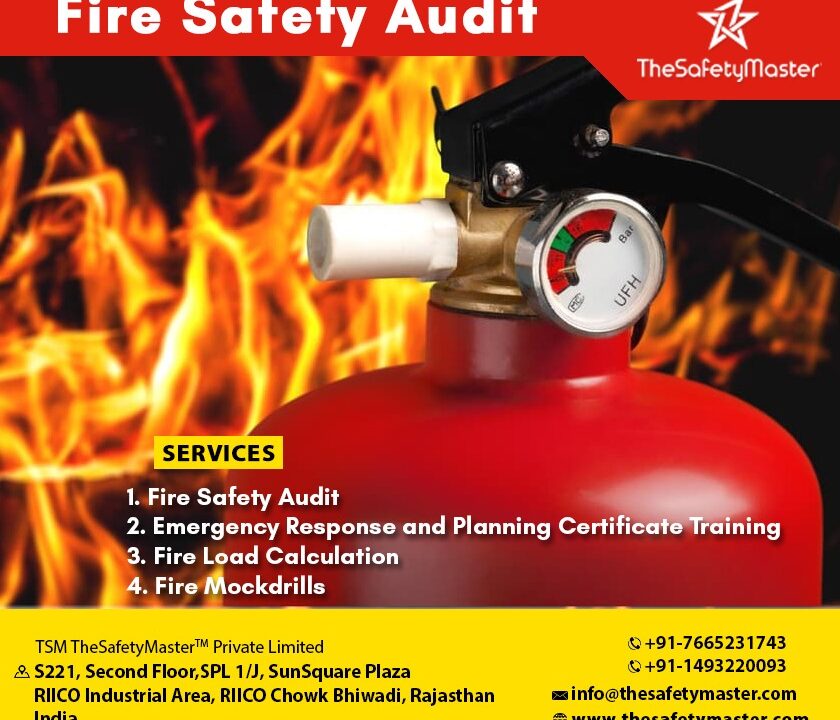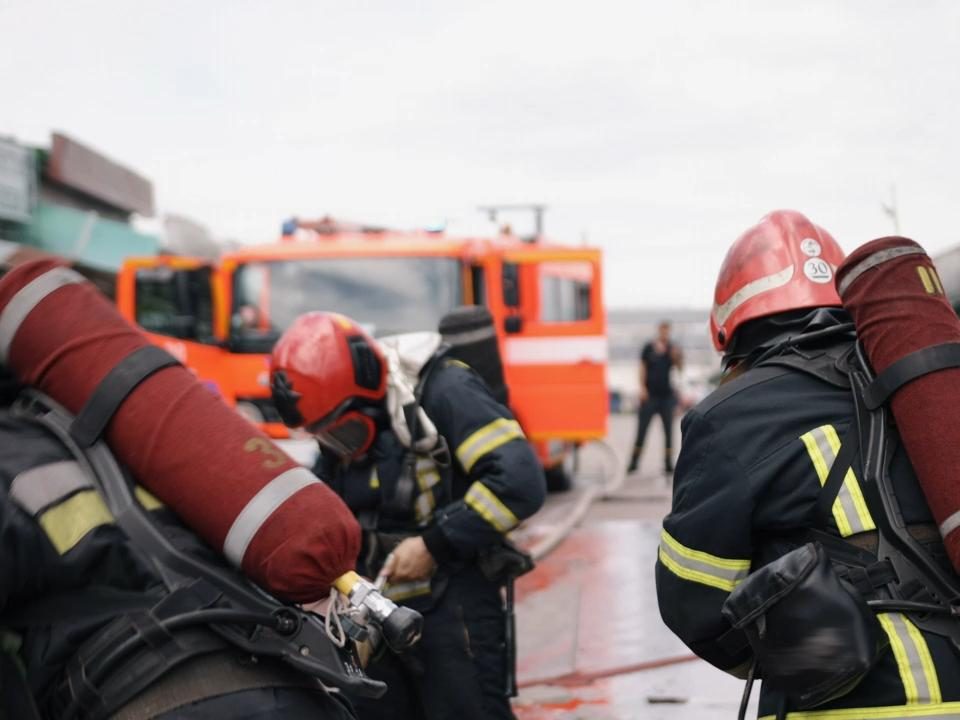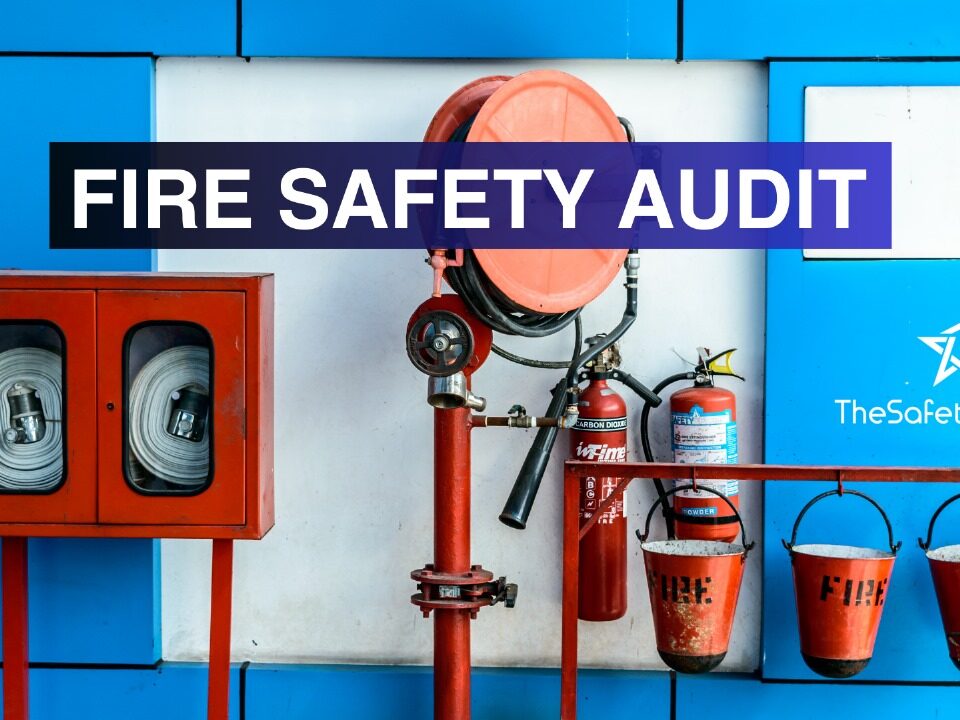The Importance of Fire Risk Assessments for Business Owners Fire Safety Audit

The Power of Behavior Based Safety: Creating a Culture of Prevention
May 5, 2023
Chlorine Safety
May 6, 2023The Importance of Fire Risk Assessments for Business Owners– Fire Safety Audit
In this article, we’ll explore the importance of fire risk assessments for business owners. Many small business owners underestimate the risks of fire and often neglect to conduct regular assessments. However, the consequences of neglecting such an important precaution can be devastating. Business owners can expect to learn about the benefits of fire risk assessments and how it can protect their property, employees, and customers. With a thorough fire risk assessment, business owners can ensure they are compliant with safety regulations, minimize the risk of a devastating fire and provide peace of mind. Stay tuned for the key insights you need to protect your business from potential fires.
Introduction
As a business owner, safety should be a top priority. A fire can cause devastating damage to both your property and your employees. In fact, according to the National Fire Protection Association (NFPA), there were over 100,000 non-residential fires in the United States in 2019 alone. That’s why it’s crucial to conduct a fire risk assessment for your business. In this blog post, we’ll explore why fire risk assessments are vital for business owners. We’ll discuss what to expect during the assessment process and how it can help minimize the risks of a fire. By the end of this post, you’ll have a better understanding of the importance of fire risk assessments and how they can benefit your business, giving you peace of mind and the protection your business needs.
Understanding the Basics of Fire Risk Assessments
Before diving into the detailed steps of conducting fire risk assessments, it’s important to have a solid understanding of the basics. A fire risk assessment is a thorough evaluation of potential fire hazards and risks in a particular environment. This assessment evaluates how these risks could harm people and property and what measures can be put in place to mitigate them. The regulatory body in charge of enforcing fire safety measures in the UK is the Fire and Rescue Service. It’s important to note that every business premise in the UK is required by law to conduct a fire risk assessment to ensure that their employees, property, and clients are safe from potential fire risks.
Typically, a fire risk assessment includes identifying potential fire risks and hazards, evaluating how likely a fire is to occur, and assessing the potential impact of a fire. Once this has been done, practical steps can be taken to mitigate these risks and reduce the potential impact of a fire.
Reasons Why Fire Risk Assessment is Necessary for Businesses
As a business owner, your primary objectives include delivering quality products or services, generating profits and growing your customer base. While these are critical goals, they are not the only factors that ensure the success of your enterprise. One crucial aspect that is often overlooked is fire safety. Fire risk assessments are necessary for businesses for various reasons. Foremost, they protect the lives of your employees, customers, and any other persons who may be on your premises. Secondly, complying with fire safety regulations safeguards your business against legal action that may result from failing to do so. Additionally, a comprehensive fire safety plan protects your business assets, which are critical in the continued growth of your enterprise. Ultimately, conducting fire risk assessments is a wise investment that not only ensures the safety of your business, but also enhances its reputation as a responsible and reliable enterprise.
Steps Involved in Conducting Fire Risk Assessments
When conducting a fire risk assessment, it’s crucial to take the correct steps to ensure the safety of your business. These steps include identifying potential fire hazards, evaluating the risks they pose, and disabling these hazards whenever possible. The next step involves assessing the potential impact of fire on people and property. This includes understanding what people in your building would need to do in the event of a fire, as well as identifying the types of fire safety equipment required.
You’ll then need to identify the people responsible for fire safety within your business, as well as how your employees can be instructed on fire safety procedures. These include regular fire safety drills and clear signage throughout your business premises.
Finally, you will need to create a thorough fire safety plan which outlines emergency procedures and how they will be carried out. This will include an evacuation plan which takes into account the needs of all employees, including those with disabilities or mobility issues. By following these steps, you’ll ensure the safety of your business, customers, and employees in the event of a fire.
Common Hazards Identified During Fire Risk Assessments
Common Hazards Identified During Fire Risk AssessmentsFire risk assessments are designed to help organizations identify potential hazards in their workplace and implement precautions to prevent fires. The assessment process involves an in-depth evaluation of the building, including its layout, contents, and the people who work there. During the assessment, common hazards that are typically identified include faulty wiring, overloaded sockets, flammable materials, and blocked escape routes. However, some risks may be unique to the workplace, such as chemicals or machinery that could spark a fire.
By identifying these hazards, a fire risk assessment enables businesses to take preventative action, such as implementing modern safety measures or buying appropriate firefighting equipment. An experienced fire risk assessor can also provide advice on where to locate equipment like extinguishers and alarms, how to maintain them, and what type of signage is needed for evacuation routes. In conclusion, performing a fire risk assessment is an essential part of ensuring the safety of everyone in a facility, and it can be the difference between a minor incident and a catastrophic disaster.
Consequence of Failing to Conduct Fire Risk Assessments
Failing to conduct a fire risk assessment for your business can have severe consequences, ranging from damage to property and equipment to loss of life. Not only that, but it can also lead to prosecution and fines for non-compliance with legal requirements and health and safety standards. Firefighters responding to a blaze at your place of work will also find it challenging to tackle it if there isn’t a proper fire safety plan in place. An example of the devastating effects of not conducting a fire risk assessment can be seen in the Grenfell Tower tragedy that occurred in June 2017. The lack of proper fire safety measures and inadequate risk assessments resulted in the deaths of 72 people and left hundreds homeless. When businesses fail to conduct fire risk assessments, they are putting their employees, customers and properties at risk. It’s a serious matter that should never be taken lightly.
Conclusion In conclusion, fire risk assessments are crucial for ensuring the safety of your employees, customers and assets. As a business owner, you have a responsibility to carry out regular assessments and implement necessary measures to prevent fires and minimise their impact. Ignoring this responsibility could lead to devastating consequences, including loss of lives, property damage and legal consequences. Therefore, it is essential to take the necessary steps to identify potential fire risks, develop a comprehensive fire safety plan and regularly review and update it to ensure its effectiveness. By investing in fire risk assessments, you can protect your business and everyone who enters it from the devastating effects of fire.
TSM TheSafetyMaster Private Limited can provide following services
- Fire Safety Audit
- Fire Audit Including Fire Load
- Fire Protection Engineering
- BOQ
- BOM
- Drawings




